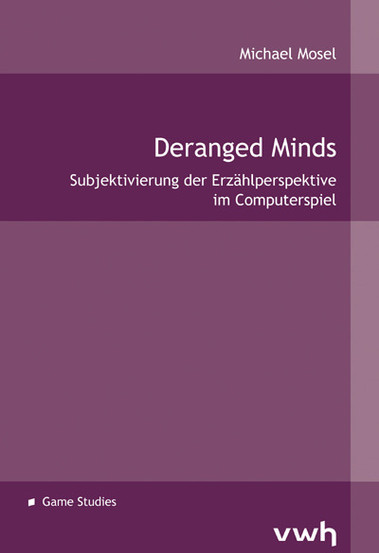DERANGED MINDS: SUBJECTIFICATION OF THE NARRATIVE PERSPECTIVE IN COMPUTER GAMES
- Dean Guadagno
- Aug 22, 2023
- 1 min read
Michael Mosel
Many computer games tend towards subjective narratives and/or delve into the mostly disturbed psyche of their protagonists. With the help of Genette's narrative theory, the author explores the question of what form a subjectification of the narrative perspective can take in computer games. The computer game is understood as a hybrid medium that describes its events both narratively and simulatively.
For this reason, literary and cinematic concepts of subjectivation are considered at the beginning, such as Gérard Genette's concept of internal focalization or Edward Branigan's film-theoretical work on the point-of-view structure. In a further step, the presented literary and cinematic concepts of subjectification are modified in such a way that they take into account the specific properties of computer games. These comprehensive theoretical foundations are then used to present and analyze methods of subjectivation in an extensive series of computer games with different dates of origin and different genres.
The interface will then be discussed separately. Using the concept of involvement, this is examined both on the software (GUI, simulated HUD) and hardware side (controller, input methods) in order to be able to describe interactivity in computer games with their subjectifying potentials. At the end of these considerations there is a view of the holodeck — known from Star Trek — as the fulfillment of the dream of total transparency of the interface that has always existed.
PUBLICATION DETAILS
LANGUAGE | BINDING | EDITION | ISBN | YEAR | PAGES |
German | Hardcover | 9783940317964 | 2011 | 146 |
OTHER NAMES
Deranged Minds: Subjektivierung der Erzählperspektive im Computerspiel
TAGS
Authors: #MichaelMosel
Publishers: #VerlagWernerHülsbusch (Verlag Werner Hülsbusch)
Languages: #German
Format: #Hardcover
Accessibility: N/A
Year: #Year2011
Genres: #GameStudies
Companies:
N/A
Public Figures:
N/A
Games:
N/A
Misc:
#VWHGameStudies (VWH Game Studies)











Comments